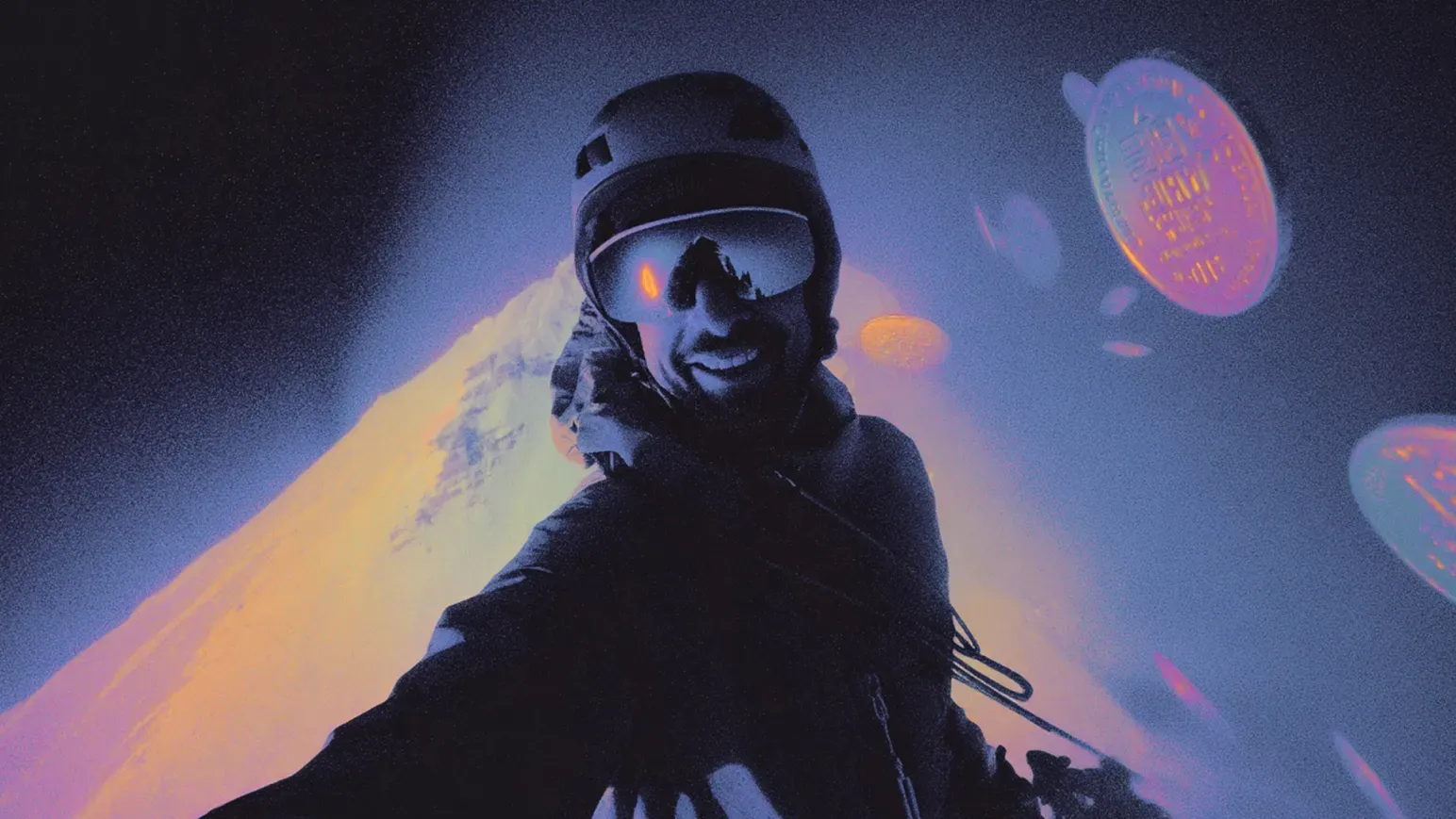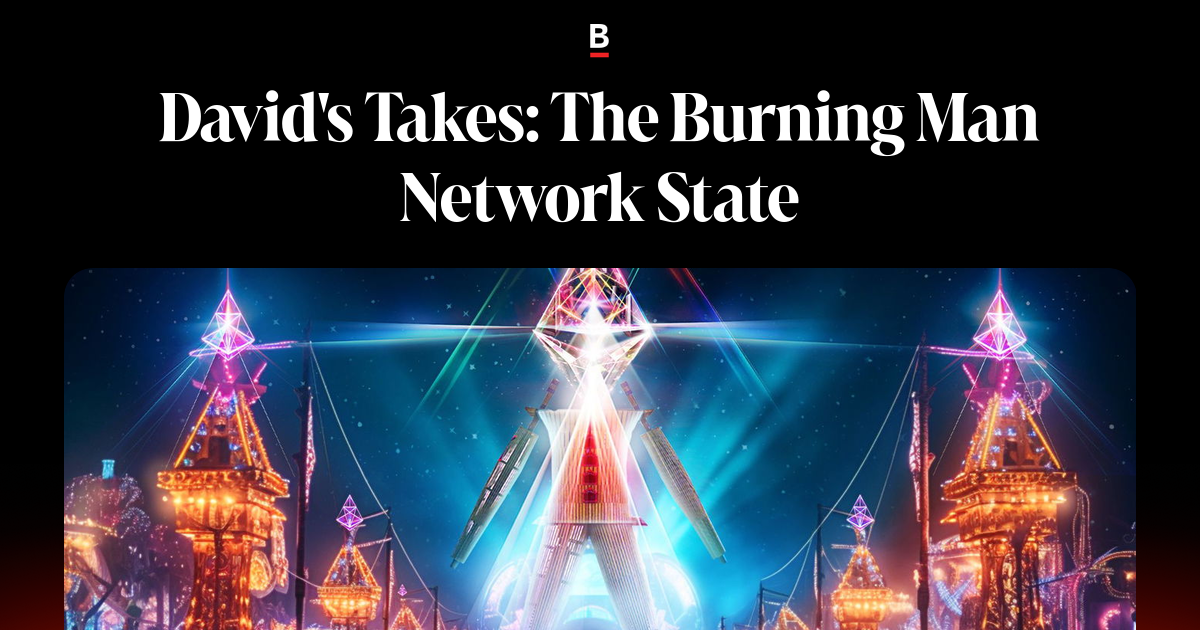The Patagonian Frontier

Dear Bankless Nation,
I just got back from climbing Torre Norte in Torres del Paine, Chile – one of the most magnificent places to adventure in Patagonia. During these adventures, I have had lots of time to think – there's no service, and no screens. Just me, my thoughts, and the scenery.
So, please humor some musings from my recent adventure.
Over the better part of the past decade, I've been among the traveling group of crypto-bandits who frequent industry conferences all over the world – EthCC in France, Devcon in Bangkok, and everywhere in between. I'm very lucky.
But when it's come to taking time for myself, Argentina and Patagonia have appealed to me more than any other place across the globe. Why is that? What about the southern tip of the Americas resonates with me so much? Why here?
After I went to my first Burning Man in 2023, I wrote about the cultural overlap between Burning Man and crypto – both decentralized, self-organizing cultural frontiers that reject traditional systems and aspire to build new ones from the ground up.

I believe there is a similar cultural overlap between those who live on the crypto frontier and the cultural identity of Patagonia.
Both crypto and Patagonia are frontier worlds, built on self-reliance, cultural autonomy, and risk tolerance; they both represent a collection of dispersed and small, high-trust communities rather than an organized central body.
“We’re heading West. This is the frontier. It’s not for everyone, but we’re glad you’re with us on the bankless journey.” While the spirit of these words alludes to the American journey into the Wild West, that embodiment of the frontier feels largely checked off. Now, stateside, we're largely looking toward technological frontiers.
But that frontier feeling also exists in Patagonia. The towns I've traveled through mostly boast a few thousand permanent residents – El Calafate, El Chalten, and Puerto Natales are each on their own respective frontier, surrounded by immense plateaus, mountain ranges, glaciers, and lakes in every direction.
Patagonia stands out as its own region, distinct in every sense – geologically, ecologically, culturally, and even psychologically. According to the intangible nation-state boundaries here, you may either be standing in Argentina or Chile, but tangibly and experientially you are in Patagonia.
That’s how I feel in crypto sometimes. Technically, I am a U.S. citizen, but I frequently feel more connected to my internet friends and online communities than I do my next-door neighbors.
It's our cultural identity that binds us, not these fake lines on maps that are drawn by governments far away from me. Even in the southern part of Patagonia, the border between Chile and Argentina actually disappears – you can't even find it on Google Maps. That’s because there are still disputes on where the border actually lies down here, but the region is so harsh and difficult to get to that no one who lives there actually cares.
Deep in Patagonia, you're on your own. In order to survive, you must practice radical self-reliance. The gaucho – the Argentine cowboy – has historically been the primary character class in Patagonia. In order to survive in Patagonia, you must build your own shelter, grow your own food, and maintain your livestock. Obviously this is all less true today – I am sitting writing this essay in a brewery – but this is the foundation for how Patagonia was established.
Patagonian towns are small, tight, high-trust communities. Each town feels like a Telegram chat where everyone knows everyone else, and everyone has their role to play in the community.
And in Patagonia, resource scarcity is a design principle, not an inconvenience. The land forces people to become engineers of simplicity. Every object, habit, and tradition that survives here does so because it earned its place through efficiency, durability, and fit with the environment.
This is a familiar ethos in how I view effective architecture of blockchain systems. Minimizing resource consumption produces emergent behavior and anti-fragile systems. Constrained resources produce solutions, not inferiority!
But perhaps my favorite shared cultural identity is the respect for nature. There is no overcoming Patagonian weather! It’s easier to adapt to the weather than try and control it. This is particularly relevant in my line of adventuring (climbing) – you respect the weather.
The crypto parallel here is our respect for economic truths. Crypto does not fight economic incentives, it harnesses them. It builds protocols that are larger than arbitrary nation-state laws, and disrespects politicians who think they are larger than the market.
It is my fourth time in Patagonia in the last two years. As I've spent time adventuring in Torres del Paine, I realized that I simply came to the one place on Earth that embodies the same cultural identity that I find so attractive in this crazy industry we call home.
So, next time you want some time off from crypto, but still want to be on a frontier that feels like home, hit me up, and I’ll share what I know about how to navigate Patagonia :)
